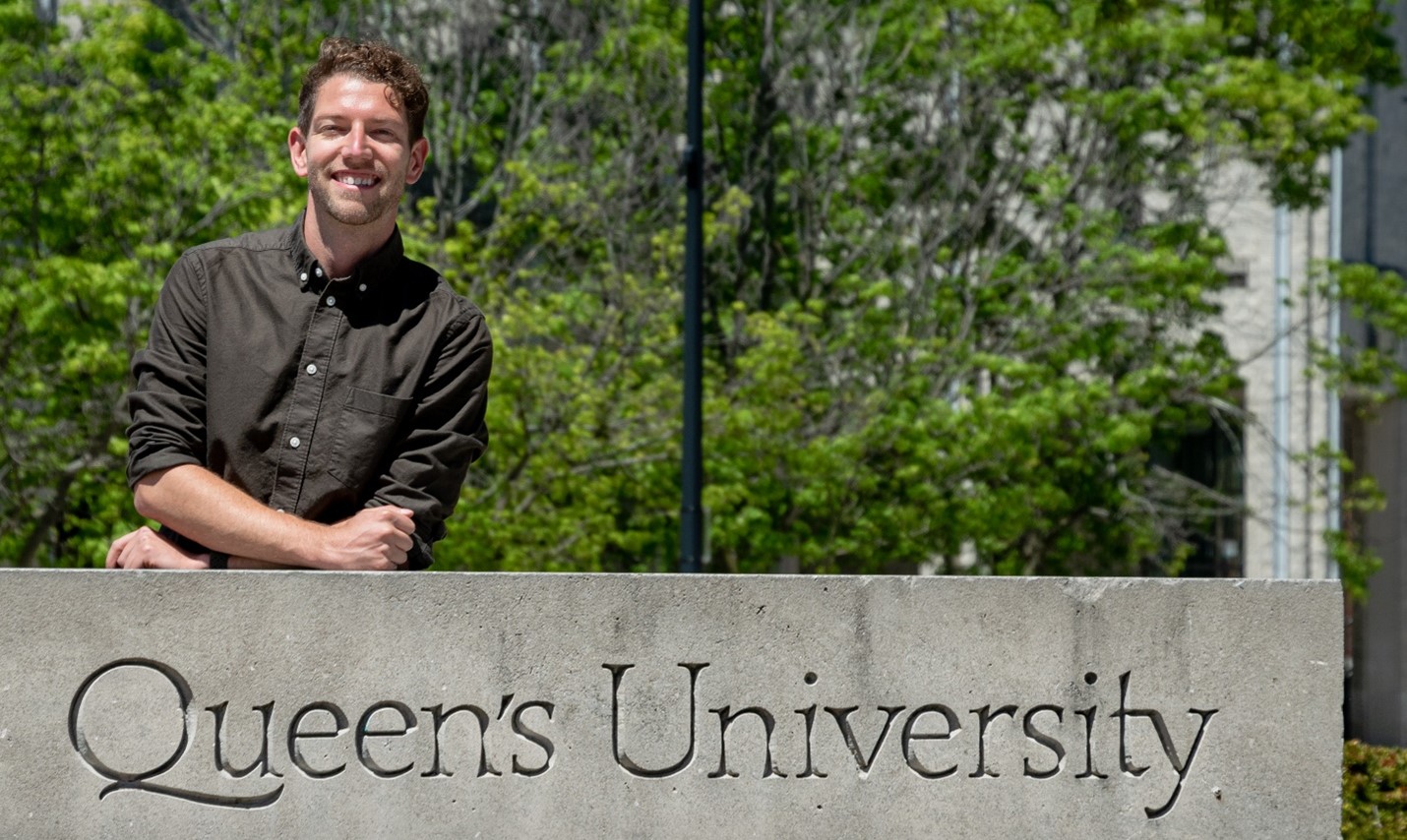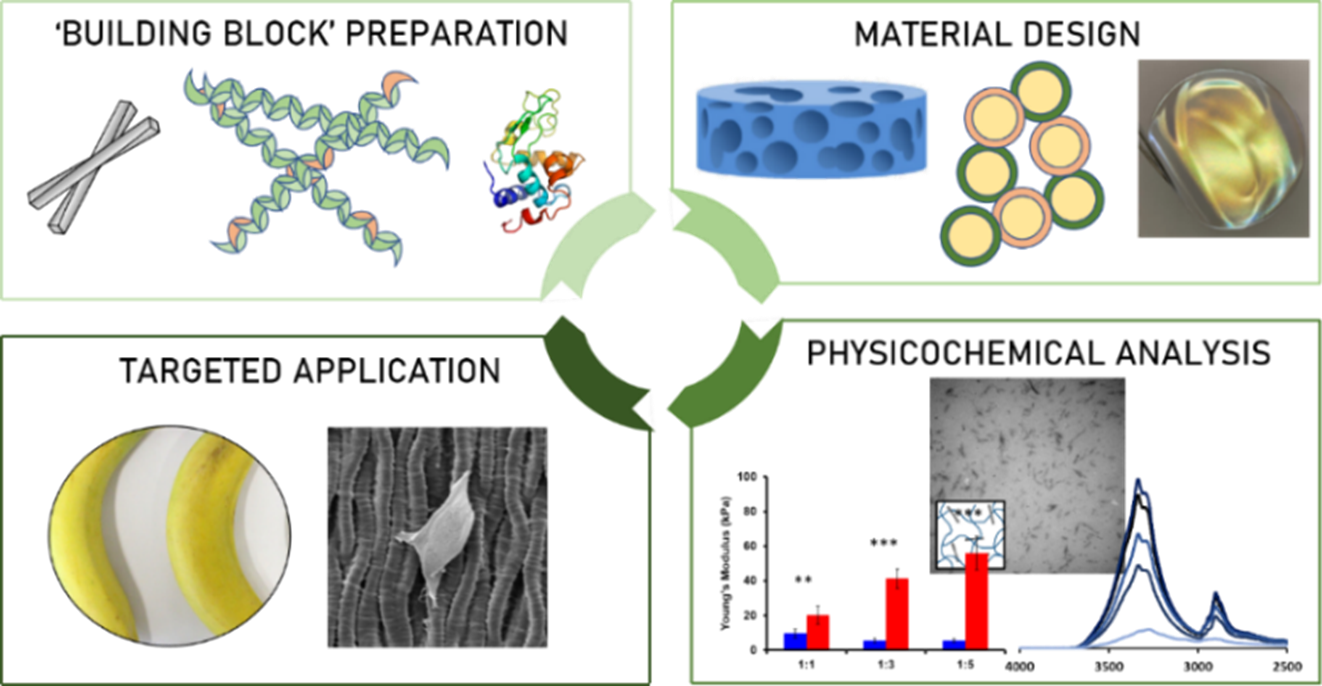Welcome to Dr. Kevin De France!
A warm welcome to Kevin De France, the newest Assistant Professor in the Department of Chemical Engineering. Kevin joins us from the Cellulose & Wood Materials Lab at Empa – Swiss Federal Laboratories for Materials Science & Technology, where he was a Postdoctoral Fellow for nearly 3 years. At Empa, his research focused on developing bio-based composites from cellulose and proteins for a variety of applications. Kevin earned his PhD in Chemical Engineering from McMaster University, where he was co-supervised by Dr. Todd Hoare and Dr. Emily Cranston, and focused on the preparation of cellulose nanocrystal-based hydrogels for biomedical applications.

“I just want to first say that I am super excited to be joining Queen’s University and working with such an amazing group of people! I grew up in a small town just outside of Hamilton, so it feels good to be back in Ontario. My research background encompasses the use of bio-based materials in place of traditional plastics. During my PhD, I looked at developing materials from cellulose as biomedical scaffolds for tissue engineering. My postdoc at Empa was quite different – first because Empa is a national research institute, which typically works closely with different companies to bring material innovations to market, and second because I was introduced to several applications outside of the biomedical realm including sustainable packaging, biological control, and even art restoration! I am very excited to bring all of these experiences with me to Queen’s as I establish my research group here.”
Kevin’s research program will explore the design of sustainable bio-based materials and their application in fields spanning the biomedical, coatings & packaging, and environmental sectors. Specifically, his group will focus on cellulose- and protein-based nanomaterial ‘building blocks’ such as cellulose nanocrystals (CNCs), cellulose nanofibers (CNFs), and protein amyloid fibers and their use in the fabrication of structures including hydrogels, aerogels, emulsions, and films. He aims to understand and leverage structure-function relationships within these nanomaterial building blocks to precisely tailor material performance for targeted applications. The work in his lab will be interdisciplinary, spanning materials chemistry, engineering, and biotechnology, with the end goal of replacing petroleum-based products with high-performance renewable materials for a greener future.

“In our society, we are exceptionally reliant on a variety of non-renewable plastic products, which more often than not contribute to increased pollution, generation of waste, and other environmental issues. Quite basically, the aim of my research program is to replace as many of these plastics as possible (such as bags, coatings, and a variety of other consumer products) with natural, recyclable, and ultimately sustainable materials. I can’t think of a better place than Queen’s University to accomplish this, as Queen’s has demonstrated exceptional commitment towards sustainability-centric research, as evidenced by its second consecutive top-10 position in the Times Higher Education Impact Rankings for advancing the United Nation’s Sustainable Development Goals.”
Outside of research, you can find Kevin hiking, running, or enjoying some good (vegetarian!) food. He also plays squash, frisbee, and a number of other non-contact team sports.
“Despite growing up in Southern Ontario, I haven’t actually spent much time in Kingston, but I’m excited to get to know the area. Restaurant recommendations, good hiking trails, or any other local tips would be very welcome!”
Kevin is currently looking to recruit motivated graduate students for his interdisciplinary group. Candidates with a background in materials science, chemical and bioengineering, engineering chemistry, or a related discipline are encouraged to apply. All inquiries can be directed to kevin.defrance@queensu.ca